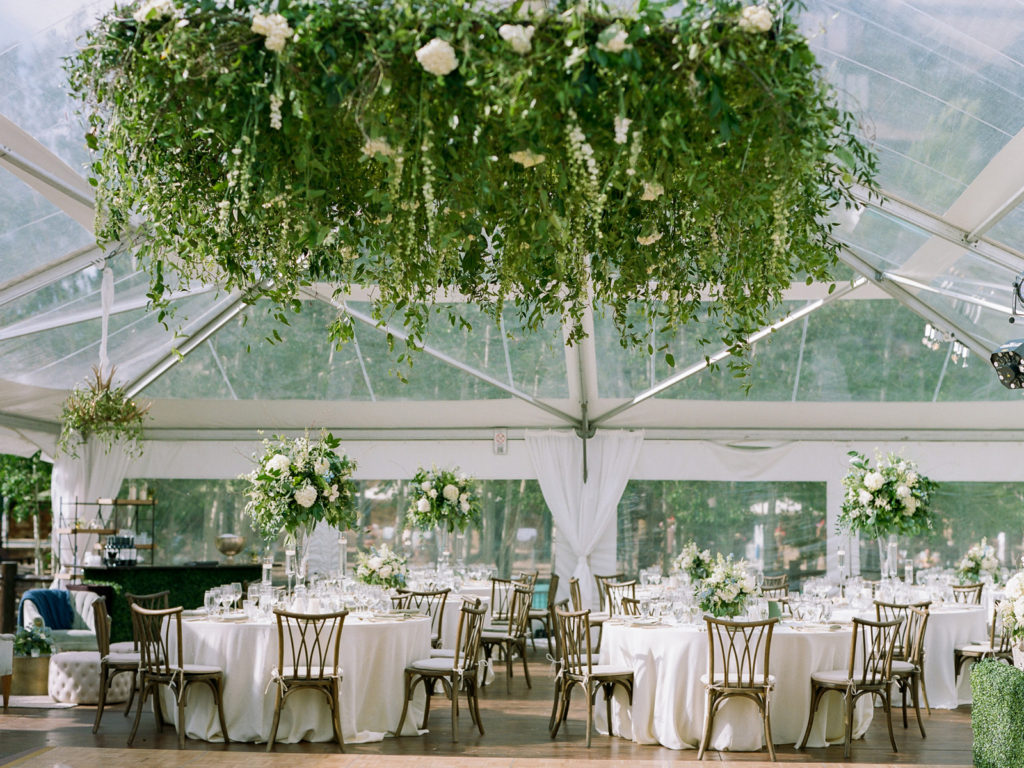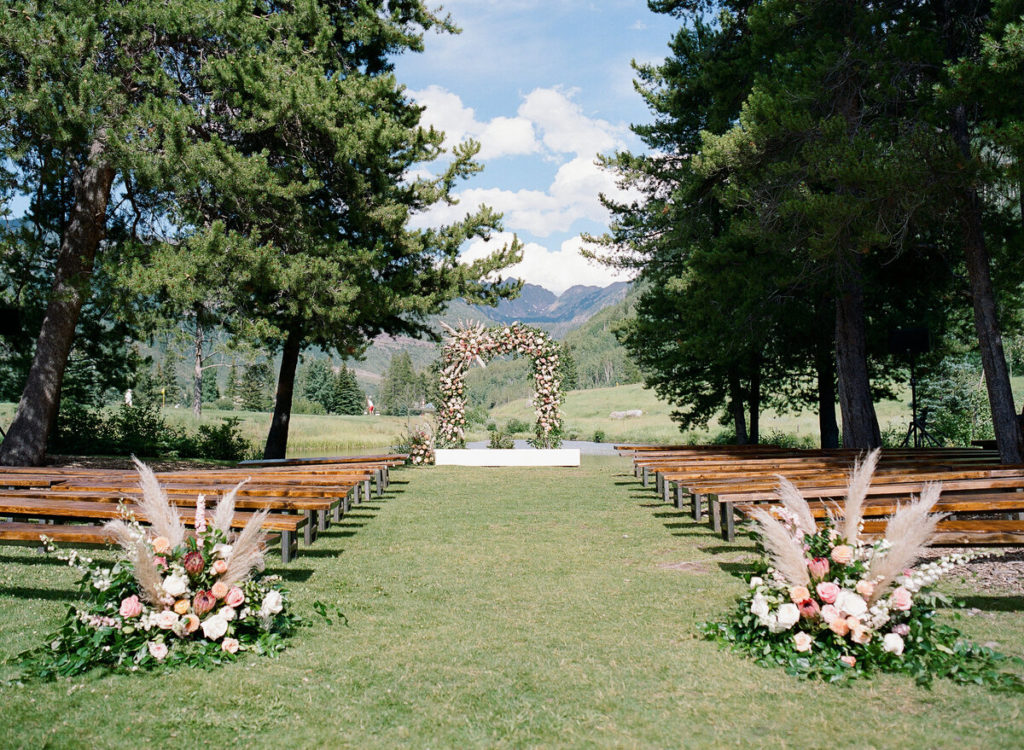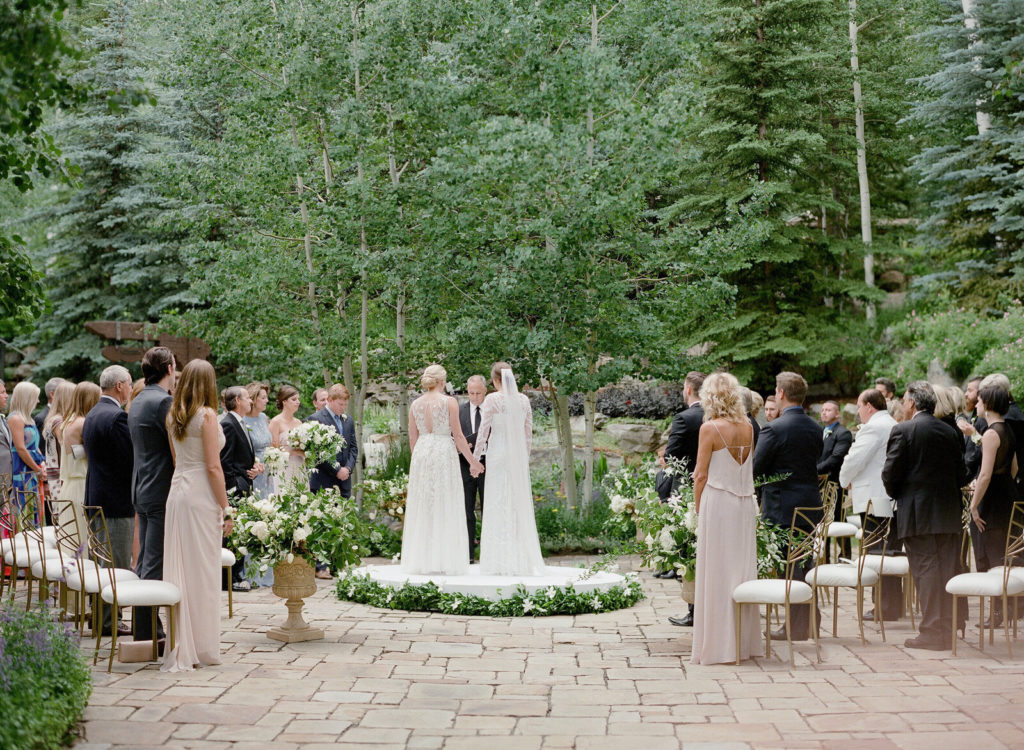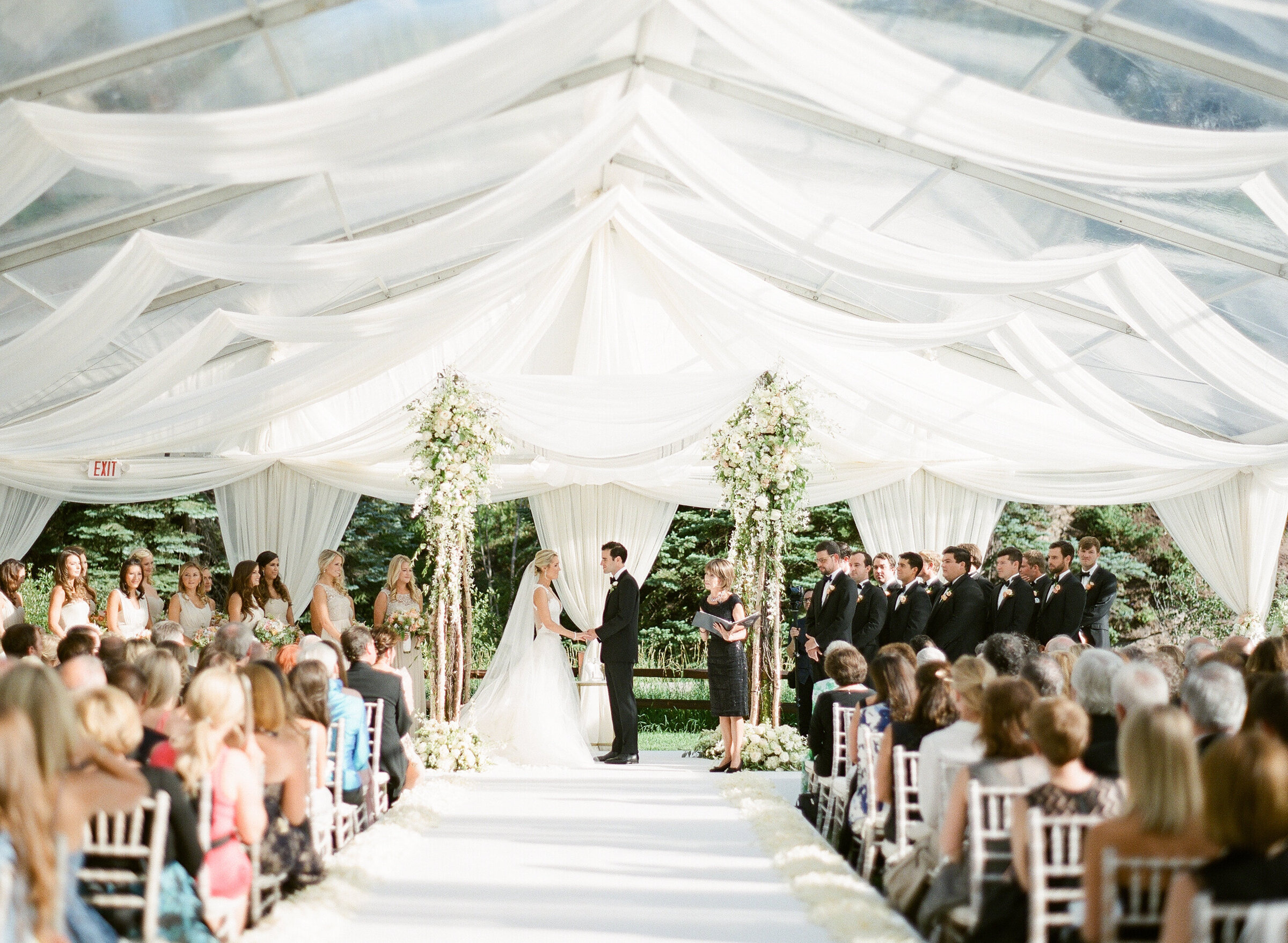When you’re preparing the budget for your wedding, it helps to have a clear picture of what you should expect to spend. The thing is, it’s often difficult to understand what one wedding planner offers versus another. Especially in a high-end, destination market such as Vail, Aspen, and Beaver Creek.
For instance, one wedding planner may quote you $5000 flat for partial planning and the next give or take $10,000. Or $15,000 for full planning based on a percentage and the next a $30,000 fixed fee.
If you’re frustrated by that, it’s certainly understandable.
But contrary to the price tag, a more “expensive” wedding planner can actually help you save money in the long run.
Along with time. And energy.
All very precious resources when you’re juggling an engagement, a career, and life in general.
As experienced Colorado wedding planners, we’re here to help you get a better idea of how wedding planners work, and how they set their prices.
As you read this post, we hope you get a clearer understanding of the different wedding planner pricing models. And, most importantly, which one best suits your needs. So, that when you find the right one – whose fee matches the time, energy and effort they put into helping create your dream wedding – they end up being worth their weight in gold.

The Truth About Wedding Planners
Planners come from various backgrounds. Some may have years, even decades, of experience. Others may have just hosted their own wedding, enjoyed the process, and decided they now want to switch careers. Or watched The Wedding Planner and decided they want to be the next Jennifer Lopez. (Don’t we all?!)
The truth remains, while there are certain organizations and certifications one can attain…and while it may sound a little scandalous…the barrier to entry into our field still remains quite low.
There are no dedicated degrees. And although we have to have insurance to run a business, we don’t have to have a license to practice such as a lawyer or doctor might.
Most anyone can build a website, show up with a clipboard, and call themselves a wedding planner. And because of this, many people don’t know how to set their rates or have an idea of what to charge for their services. Or, they feel the best way to stand apart from their competition and book more business is to charge less.
Common Wedding Planner Pricing Structures
Now that you have an idea of why service fees vary, let’s talk a little more about the most common kinds of pricing models and what you can expect from each.
Flat-Fee Pricing
Before we begin, let us be clear – there is no right or wrong pricing structure when it comes to wedding planning service fees. With that being said, the most common model you’ll come across is a flat-fee pricing structure.
This structure is the easiest for planners to sell and for clients to understand. And for obvious reasons. However, it’s most common that planners charge this way because they are a volume-based business.
This means they will take on 15-25 events per season to sustain their business. They often work by themselves. And oftentimes don’t have a full-time support structure or staff to provide an even further level of customer service or attention to detail. The kind of attention to detail you might expect when planning a high-end wedding in Vail Valley.
If you come across a wedding planner who charges a flat fee, there’s no reason to be alarmed. We personally know some of the best, luxury wedding planners in the country who offer flat-fee pricing. However, if you come across one that is far different from other quotes you might be receiving… or one that feels too good to be true, it probably is.
This isn’t to say that all flat fee planners will let you down. Far from it. But what it most likely means is the majority won’t be able to give you the kind of experience you want – nay, deserve – out of your wedding planning process.
Percentage Pricing
Wedding planners who go by a percentage pricing structure fall into two major categories:
- Percentage Only: They charge a percentage of the total spend (vendors, venue, etc. costs)
- Hybrid: They charge a mix of flat fees and percentages
When you first look at percentage pricing, it may seem intimidating. But in all honesty, it’s one of the best ways to properly compensate the planner and his/her creative team.
In general, wedding planners who work off a percentage model are NOT volume-based businesses. This typically ensures the client receives superb customer service, attention to detail, and a seamless experience.
. . .

Hybrid Pricing
At KKWE, we incorporate a hybrid pricing structure – meaning our rates correlate to the four main categories wedding planners oversee. The benefit of hybrid pricing is that it provides transparency for both the wedding planner and the client. The flat fee covers the majority of the work that the planner will do, so the client knows upfront what they can expect to pay. The percentage rate allows for flexibility in case the client needs additional assistance or consultation beyond what is covered in the original services provided.
Planning & Design (flat fee): This is where the fun begins! From getting to know each other to all the research and development – it’s like a creative incubator where your wedding-day visions come together.
Production (percentage): Once the planning and design phase is primarily complete, we move onto the action-oriented production phase. It’s not always predictable, especially at the beginning of the process. But it’s where we take the original vision and sculpt it into a magnificent end result.
Event Management (flat fee): The final phase is where the logistics come in and includes all the moving parts, like labor and the amount of time needed overall.
We charge flat fees for services that are relatively predictable (such as the known time a certain project will take) and a percentage when there are more variables to consider.
We’ve found the hybrid model easier for clients to understand, as it gives a better idea of what their total investment will be. When you look at a hybrid pricing structure, you’ll know exactly where your money is going. Which we hope gives you further peace of mind.

Preparing Your Budget
It may be tempting to hire a wedding planner who charges a relatively low fee. But hiring a planner for partial service or one who offers full service at such a low cost is going to cause you more stress than you may realize.
As the saying goes: You get what you pay for.
And isn’t one of the primary reasons you hire a wedding planner to alleviate stress?
On a day as monumental as your wedding day, do you really want to chance it?
As your wedding planners, we want to have a solid understanding of what’s important to you so that we can prepare your budget accordingly. And from there, present you with a detailed budget that’s in your ideal range.
For example: If a live band is a priority, then we know to allocate more of your budget than if you prefer a DJ or if music isn’t quite as important to you. It also might mean we don’t dive as deep into floral, rentals and/or decor.
Yes, a wedding planner is a big purchase. But it’s an undeniably important one considering the time, energy, and stress they save you in the long run. And that’s why your leadership team should take their roles seriously to assure you of a seamless and enjoyable planning process. And we do!
Interesting in learning more about our services and if we’re the right planners for your Colorado or destination wedding? Please reach out.

Twitter
Pinterest
Facebook
Share On
Leave a Comment